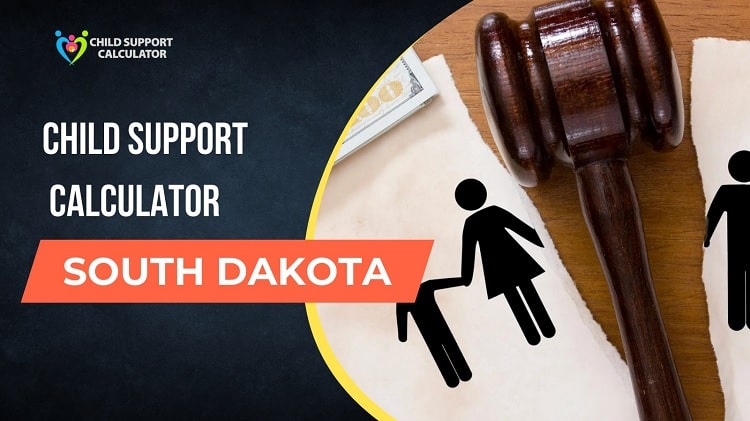New Brunswick Child Support Calculator | Guidelines – 2024
When parents are divorcing or separated, a useful tool to assist parents and legal experts in determining the right amount of financial support to give a child is determined by the child support calculator in New Brunswick.
To make sure that children receive the financial support they require to maintain a reasonable level of living, this calculator takes into account a variety of variables, including the combined income of both parents, the custody arrangement, and the number of children involved.

Family law prioritizes the best interests of the kid, making child support an important component of the system. The calculator offers a just and open method of calculating child support payments, making sure that both parents shoulder their financial obligations fairly.
Like many other Canadian provinces, New Brunswick has established rules and laws that are particular to calculating child support obligations.
By using these standards and taking into account unique circumstances, the Child Support Calculator streamlines this procedure. It supports the child’s welfare and financial security by assisting parents and the legal system in reaching a consistent and fair conclusion.
We’ll go over the main characteristics of the New Brunswick Child Support Calculator in this article, as well as how it functions and why it’s so important for parents navigating the intricate arrangements for child support in the province.
How much is child support in New Brunswick?
As in all Canadian provinces and territories, child support in New Brunswick is decided using pre-established rules that take into account the earnings of both parents, the custody arrangement, and the number of children involved.
These rules are designed to make sure that kids have enough financial support, taking into account both parents’ financial capacities.
The federal child support guidelines are used to determine child support obligations by using the child support calculator in New Brunswick. These rules offer a standardized method for calculating child support, ensuring that the procedure is fair and consistent. Here is a summary of New Brunswick’s child support formula:
Disclosure of Income
Both parents must report all sources of income, including salary, wages, self-employment, rental income, and other sources of income. The calculation of child support is done using this income data.
Custody Arrangement
The custody arrangement affects how much child support is paid. The non-custodial parent usually provides child support if one parent has sole custody. The computation is more complicated when there is joint custody because it takes into account how much time each parent spends with the child.
Children
The number of children engaged in the support plan has an impact on how much child support is paid. In general, the support requirement increases with the number of children.
Special Expenses
In addition to the standard amount of child support, parents may also be expected to contribute financially to extracurricular activities, childcare, and medical bills.
Guidelines Tables
Based on the paying parent’s income and the number of children, the Federal Child Support Guidelines give tables that specify the fundamental child support amounts. These tables are a good place to start when figuring out child support.
It’s crucial to remember that child support is determined on an individual basis, and that situations might change. To more precisely estimate their child support responsibilities, parents can utilize the Child Support Calculator in New Brunswick.
For a more precise estimation of child support payments, the calculator considers the particular income and custody information.
The ultimate objective of child support in New Brunswick, like in the rest of Canada, is to guarantee that children, regardless of the relationship between their parents, receive the financial support they require to maintain a fair standard of life.
The purpose of child support payments is to pay for necessities including shelter, food, clothes, education, and healthcare.
How is child support calculated in New Brunswick?
The Federal Child Support Guidelines, which offer a standardized method to establishing the amount of child support one parent should pay to the other, are used to calculate child support in New Brunswick, Canada.
These rules are made to make sure that kids get enough financial support, taking into account both parents’ incomes and the custody arrangement. Here is a thorough description of how New Brunswick calculates child support:
Calculating Income
- Determine both parents’ incomes to start calculating child support. Income is derived from a variety of sources, including job, self-employment, rental income, and investment income. Both parents must disclose accurate and comprehensive information about their income.
- The court may impute income to a parent based on their earning capacity if one of the parents is intentionally underpaying themselves or withholding their income.
Selecting the Proper Guidelines
- For various income scenarios, the Federal Child Support Guidelines provide several tables. The “table amount” for single custody and the “shared custody” table are the two primary varieties of tables.
- The term “sole custody” describes a scenario in which one parent has primary custody of the child while the other has access or visitation privileges. In this instance, child support is mostly determined by the income of the paying parent.
In contrast, shared custody describes a scenario in which both parents divide parenting time about equally. In situations involving shared custody, the formula takes into account both parents’ earnings as well as the amount of time the child spends with each parent.
Using the Tables of Guideline
- Based on the paying parent’s income and the number of children involved, the Federal Child Support Guidelines offer tables that specify the fundamental child support amounts.
- Parents can use these tables to determine the minimal child support amount appropriate for their particular circumstance. The data are updated frequently to account for variations in the cost of living.
Modifications for Shared Custody
- A separate formula is used when there is shared custody and the child spends a significant amount of time with both parents. The number of children and the salaries of both parents are factored into the shared custody table. Even if their earnings differ, the goal is to guarantee that both parents contribute to the child’s financial support.
- Use the steps below to determine child support in circumstances of shared custody:
- Utilise the guideline tables to calculate the basic child support amount for each parent based on their respective incomes and the number of children.
- Determine the difference in the support payments made to the two parents.
- The parent with the higher income could have to make up the difference for the parent with the lower income.
Adjustments for Extraordinary or Special Expenses
Parents may be liable for splitting additional or extraordinary costs associated with the child’s care in addition to the standard child support obligation. These costs may consist of:
- Childcare expenses
- Non-insurance-related medical and dental costs
- After-school activities
- Cost of tuition and fees
The distribution of these costs is usually determined by the share of each parent’s income. For instance, if one parent makes 60% of the household income, they would be expected to pay 60% of the additional costs.
Determining the Total Amount of Child Support
- The total amount of child support is calculated after the basic child support payment and any modifications for shared custody or special costs have been assessed.
- The paying parent typically bears responsibility for providing the receiving parent with monthly child support payments. The purpose of these payments is to provide for the child’s basic requirements, such as housing, food, clothes, education, and healthcare.
Review and updates
- Child support orders aren’t always fixed. If there are substantial changes in the situation, like a change in the income or the custody arrangement, they can be examined and modified. If either parent feels the child support order requires revision, they may both apply for review.
Enforcement and Collection
- Court-issued orders for child support are enforceable in court. The receiving parent may file a lawsuit to enforce the order if the paying parent doesn’t make the appropriate payments. To make sure the kid gets the required support, this may entail taking enforcement actions, such as asset seizure or wage garnishment.
Obtaining Legal Counsel
- Determining child support can be difficult, particularly when there is shared custody, self-employment income, or other unusual circumstances. Parents should seek legal counsel or speak with a family lawyer to ensure that child support estimates are fair and accurate.
It’s crucial to remember that while the Federal Child Support Guidelines aim to offer a framework for calculating child support, individual situations might differ greatly.
The main objective of these rules is to put the child’s best interests first and make sure they have access to the financial support they require for their well-being and healthy growth.
In New Brunswick, parents are urged to cooperate to create child support arrangements that are in keeping with their children’s needs. However, if disagreements occur, the court may step in to ensure the rules are followed.
Child Support Modification in New Brunswick
In New Brunswick, child support modifications are available when there have been material changes in the situation that call for a review and revision of the current child support order.
It’s crucial to recognize that child support orders can be changed to account for adjustments in income, child custody arrangements, or other pertinent considerations. Here is a summary of New Brunswick’s child support modification procedure:
Justifications for the change
There are several grounds for changing child support orders, including:
- A change in the income of either parent
- Modifications to the custody or visitation schedule
- Significant adjustments to the child’s requirements or costs
- The child becomes self-sufficient financially
Talking with the Other Parent
It is frequently advised for parents to attempt to agree on the adjustment of child support through negotiation or mediation before pursuing a court-ordered modification.
A mutually agreeable solution can be reached between parents without the involvement of the court with open communication and collaboration.
Application for Modification
The parent requesting the modification may ask the court to modify child support if an agreement cannot be reached or if one parent is uncooperative. This entails presenting a court application stating the justifications for the sought modification.
Evidentiary Requirements
The parent requesting the adjustment must present proof of the material change in circumstances to support the modification request.
Financial data, such as tax returns, pay stubs, or employment histories, as well as other information pertinent to custody or the needs of the kid, may be included in this evidence.
Court considers
The court will consider the case after the application has been submitted. There will be a chance for the other parent to respond and share their viewpoint.
The court will evaluate whether the sought adjustment is appropriate in light of the child’s best interests after taking into account all the relevant facts.
Modification Order
The court will issue a new child support order if it finds that there has been a material change in circumstances necessitating a modification. The new child support payment amount and any other pertinent provisions will be specified in the amended order.
Enforcement of the New Order:
Both parents must follow the terms of the new child support order since it is legally obligatory. If the paying parent does not adhere to the adjusted child support payment, the receiving parent may file a lawsuit to enforce the revised order.
Regular Review
Child support orders may be routinely reviewed, particularly if circumstances are continuously changing. If they feel it is important to make sure the child’s financial requirements are being addressed, either parent may apply for a review.
All financial transactions about child support, as well as any adjustments to income or custody arrangements, must be accurately documented by parents.
To successfully navigate the legal procedure when obtaining child support changes, it can be helpful to get legal counsel or talk with a family lawyer.
The child’s best interests must also come first throughout the alteration procedure to guarantee that they get the assistance they need for their well-being.
Conclusion
In conclusion, the Child Support Calculator in New Brunswick is a useful tool that enables accurate and dependable child support calculations.
It guarantees that children’s financial requirements are satisfied by following the Federal Child Support Guidelines, taking into account parental income, custody arrangements, and unique expenses.
This calculator simplifies the process, eventually putting the kid’s best interests first, whether parents are negotiating child support agreements or asking for revisions as a result of evolving circumstances.
However it’s crucial to keep in mind that child support calculations can be intricate, and legal counsel might be required to successfully negotiate the complexities and guarantee the child’s financial security and wellbeing.
faqs
What does the New Brunswick Child Support Calculator do?
When parents are divorcing or separated, a tool called the New Brunswick Child Support Calculator is used to establish the right amount of child support payments that one parent should make to the other. The Federal Child Support Guidelines are followed.
In New Brunswick, is using the Child Support Calculator required for parents?
The Child Support Calculator is a recommended tool for parents and legal experts to utilize to ensure fair and consistent child support computations, even if its usage is not required.
How frequently should child support in New Brunswick be reviewed?
Child support orders may be routinely reviewed, particularly if circumstances are continuously changing. If required, any parent may request a review.
Do child support calculations take into account shared custody arrangements?
Yes, shared custody agreements are taken into account when determining child support. In such situations, consideration is given to both parents’ incomes as well as the quantity of time the child spends with each parent.
What happens if a parent in New Brunswick disobeys a child support order?
A court order can be used to enforce a parent’s obligation to pay child support, and this action may include asset seizure, wage garnishment, or other forms of enforcement.







